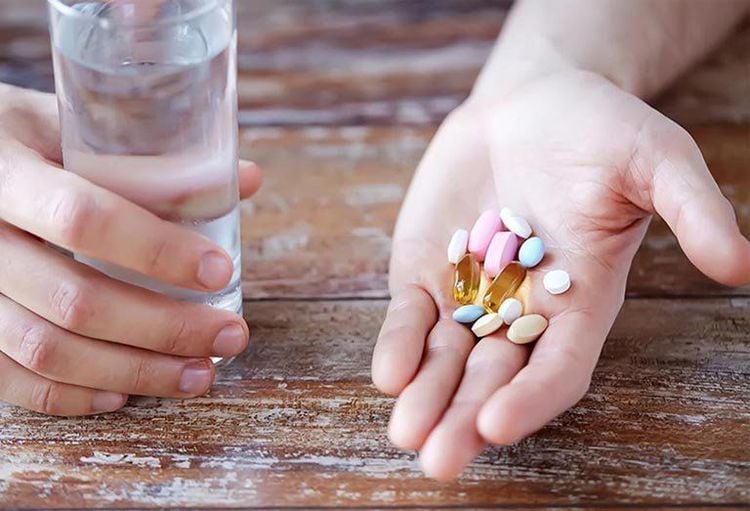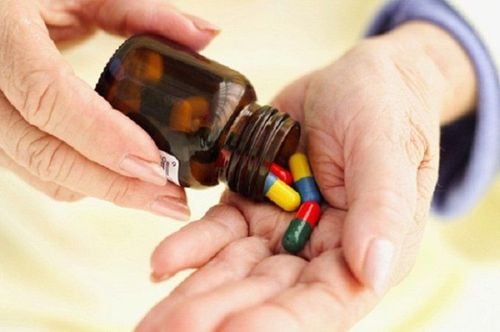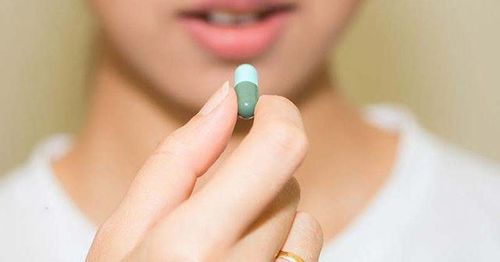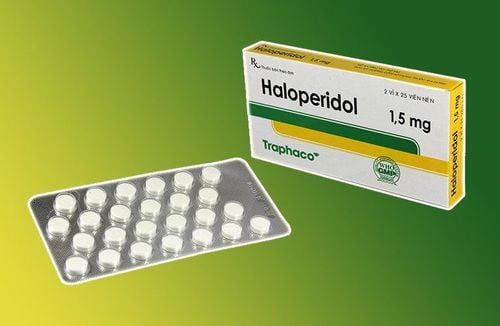This is an automatically translated article.
Experts say the possibility of depression relapse is very high. Patients often have to constantly fight, even the next relapse is worse and can lead to severe consequences, the most dangerous of which is self-harm or suicidal thoughts.
1. Does depression recur?
According to statistical results, after being cured of depression, there is still a risk of recurrence once or many times. Symptoms will begin to reappear after about 4 months of successful treatment for depression. Relapse rate will depend on how many times you face depression, specifically:
People with first-time depression have a 50% risk of relapse; The risk of relapse in patients with a second depressive episode was 70%; People with the 3rd disease have a significantly high recurrence rate, up to 90%. Around the question of whether depression recurs, experts also add that this condition is easy to recur in children, most commonly in adolescents (from 10-19 years old). According to the American Academy of Pediatrics, on average 1 in 10 young people 16 years of age and older have this condition. More than 50% of cases of mental disorders appear before the age of 14 but are overlooked or overlooked, profoundly affecting the health of children. Children who have experienced a depressive episode are at increased risk of developing depression again within 5 years.
2. Causes of recurrent depression
Factors that can cause depression to recur include:
Voluntary discontinuation of treatment Most people with recurrent depression admit to having dropped out of treatment. When they start to feel fine again, they decide for themselves to stop taking the medication and stop seeing a psychologist. As a result, symptoms that have just been relieved will return, even pushing the patient into a new, more severe episode of depression.
Strictly following the doctor's instructions will help the healing process take place in the safest and most effective way. If you are concerned about the side effects of the drug, you need to actively maintain a healthy lifestyle to minimize potential risks.
The death of a loved one According to statistics in the United States, in 5 cases of recurrent depression, 1 patient has to experience the death of a loved one. Grief is a natural and inevitable feeling in the face of great loss. However, if that feeling of sadness continues for a long time, it will lead to a relapse of depression.
Experiencing a traumatic event Similarly, painful, bloody, brutal, and horrible events (war, natural disaster, attack...) can trigger a relapse of many people's depression . Even when these events are over, anniversaries or reminiscent memories can become factors in triggering recurrent episodes of depression.
Divorce A 2014 study found that divorce was the leading factor in patients suffering from new episodes of depression. In which, nearly 60% of adults who have suffered from depression will face psychological problems again after breaking up with their partners.
Living in a gloomy, cold house Although this condition is not really clinically diagnosed, it is very common among older parents when their children are grown up, going to school move away, get married and move out on their own. This situation causes them to feel sad, alone and alone, leading to recurrent depression.

Môi trường sống có ảnh hưởng tới tình trạng trầm cảm tái phát
Hormonal changes This is a typical condition of the female body, which entails a change in the concentration of chemicals that control emotions inside the brain. Therefore, women are very susceptible to depression during puberty, during and after pregnancy as well as perimenopause - the period when the hormones in the body change the most.
Addiction The addiction to gambling, alcohol, even the abuse of modern entertainment means too much are also factors that cause depression. That's because when you're addicted to something but have to stop exposure, the change in neurochemicals can make you feel down, frustrated, annoyed or angry.
3. How to manage recurrent depression
3.1. Management of recurrent depression in children If depression is not treated properly, children's disease can recur in adulthood with more severe severity. Therefore, parents need to promptly detect and actively intervene right from the first episode of depression in their child.
Currently, specialists often prescribe selective medication, combined with psychotherapy for children with moderate to severe depression.
At the same time, parents need to spend a lot of time caring for and talking to their children every day. In addition to being willing to listen to their heart, share difficulties and help their children, parents must also avoid the following:
Intervening too deeply or taking the right to make decisions for their children; Criticize harshly or scold severely when your child makes a mistake; Compare with “one's family”; Strict to the extreme. With sincere love and understanding, parents can accompany their children through difficult times, especially depression during puberty.
3.2. Managing Recurrent Depression in Adults Experts say about 30% of people taking antidepressants will experience a relapse a year later. To actively prevent this condition, you need to adhere to the following principles:
Take medicine as prescribed The patient must take the medicine at the right time, at a certain time of the day, at the right dose, and have regular medical check-ups. according to the appointment schedule. Although it seems rigid and passive, this note is an important first piece of advice, which is the key to successful depression treatment and effective relapse prevention. In fact, nearly half of depressed patients do not receive medical treatment as indicated.

Người bệnh cần chữa trầm cảm theo thuốc kê đơn của bác sĩ chuyên khoa
Check for other conditions Another medical condition can affect your ability to respond to depression medication or make your mood worse. So, when you notice the episodes of depression come back, go to the hospital to check if you have some underlying health problems, such as hypothyroidism, vitamin deficiency, dehydration, low blood sugar , high blood pressure , diabetes , heart disease , parkinson , ...
Adjust prescription Some cases of depression need to increase the dose of medicine to combat the recurrence of manifestations . Even if the current medication is not working, resistance or dependence develops, the doctor will instruct the patient to change to some other drug under careful supervision throughout the process. treatment. In addition, patients can also consult a doctor about combining some other functional foods to improve the effectiveness of depression treatment.
Psychotherapy This therapy can work similarly to antidepressants, even preventing relapses more effectively. Combining the two methods will bring more benefits than treating depression separately.
Healthy lifestyle Patients should take measures to relieve stress such as meditation and exercise. Usually, people who abuse alcohol often present with mental disorders. So you need to try to quit drinking to treat the condition completely, absolutely do not use even a very small amount. Building a scientific diet also helps to improve symptoms of depression quickly and effectively. In particular, foods rich in vitamin B12, omega-3, amino acids have the ability to create positive changes to the brain.
Finally, to prevent and reverse the recurrence of depression, the patient needs to learn how to think positively, be optimistic, nurture emotions and take care of themselves, as well as actively talk, share openly and Live in harmony with those around you.
Please dial HOTLINE for more information or register for an appointment HERE. Download MyVinmec app to make appointments faster and to manage your bookings easily.













